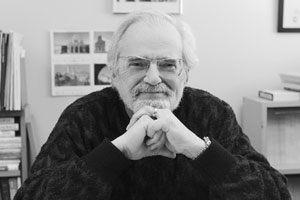News

Pittsburgh 2024: Phenomenology at the Borders
ICNAP XIV: Affect in Dialogue. A conference on phenomenology of affect
May 30th – June 1st 2023
Center for Phenomenological Psychology and Aesthetics
University of Copenhagen, Denmark

In celebration of the 40th Anniversary of the Society for Phenomenology and the Human Sciences (SPHS), there will be a Special Issue of Schutzian Research.
Find more information in the Call for Papers.

In Memory of George Psathas (1929-2018)
We mourn the passing of George Psathas, which occurred on November 15, 2018. He was professor of Sociology at Boston University until his retirement in 1997. George Psathas was born in 1929 in New Haven, Connecticut. He received his B.A. at Yale University in 1950, his M.A. at the University of Michigan in 1951 and his Ph.D. at Yale University in 1956. From 1963 to 1968 he was Associate Professor at Washington University in St. Louis. George Psathas is the co-founder of the Society for Phenomenology and the Human Sciences (SPHS) as well as founding editor of Human Studies. A Journal for Philosophy and the Social Sciences. He was Honorary President of the International Institute for Ethnomethodology and Conversation Analysis. It was his achievement to introduce the paradigm of Phenomenological Sociology in to US American sociological thought, following specifically the works of Alfred Schütz and Harold Garfinkel. He also made a special contribution to the promotion of ethnomethodology. We keep George Psathas in memory as an outstanding sociologist and ethnomethodologist.
Jochen Dreher
In Memory of Lester Embree (1938-2017)
After months of struggle with a spinal injury and complications, Lester Embree, Ph.D., passed away on January 19, 2017. He was Professor of Philosophy at Florida Atlantic University and received his Ph.D. from the New School for Social Research in 1972. He did his postdoctoral work with Aron Gurwitsch and had taken classes with Dorion Cairns. He was instrumental in setting up the archives for the papers and files of, among others, Alfred Schutz, Aron Gurwitsch, and Dorion Cairns. He was a prolific scholar, having published 5 book-length investigations, 94 book chapters, 89 interpretive essays, 46 edited books, and 31 edited works of other authors. Many of his works have been published in several languages. He also gave 200 presentations in various conferences and academic settings. He served on the boards of 35 phenomenological societies and belonged to 20 philosophical societies. One of his great services was to foster the growth of phenomenological organizations worldwide, and he was frequently involved in the beginnings of such organizations, such as the Center for Advanced Research in Phenomenology, the Organization of Phenomenological Organizations, the Husserl Circle, the Círculo LatinoAmericano de Fenomenología, the Central and European Conference in Phenomenology, the Nordic Society for Phenomenology, Phenomenology for the East Asia Circle, Réseau Euro-Méditerranéen de phénoménologie pour le dialogue interculturel, the Society for Phenomenology and the Human Sciences, and the International Alfred Schutz Circle for Phenomenology and Interpretive Social Science. He was instrumental in establishing two book series, Contributions to Phenomenology (Springer Press) and the Series in Continental Thought (Ohio State University Press).
He was a great entrepreneur for phenomenology, always imagining and realizing new phenomenological projects and setting up new organizations. His service to phenomenology included encouraging the practice of phenomenological method, fostering multidisciplinary engagement, mentoring a generation of younger phenomenology scholars, and helping the tradition of phenomenology to flourish across cultures. In the many scholarly conferences he attended, he could be counted on to provide regular illuminating comments based on the views of authoritative phenomenologists, particularly those of the New School; to offer encouraging compliments and insightful criticisms; and to occasionally indulge in instances of corny humor. With Lester's death, phenomenology has lost one of its great animating spirits.
Michael Barber
